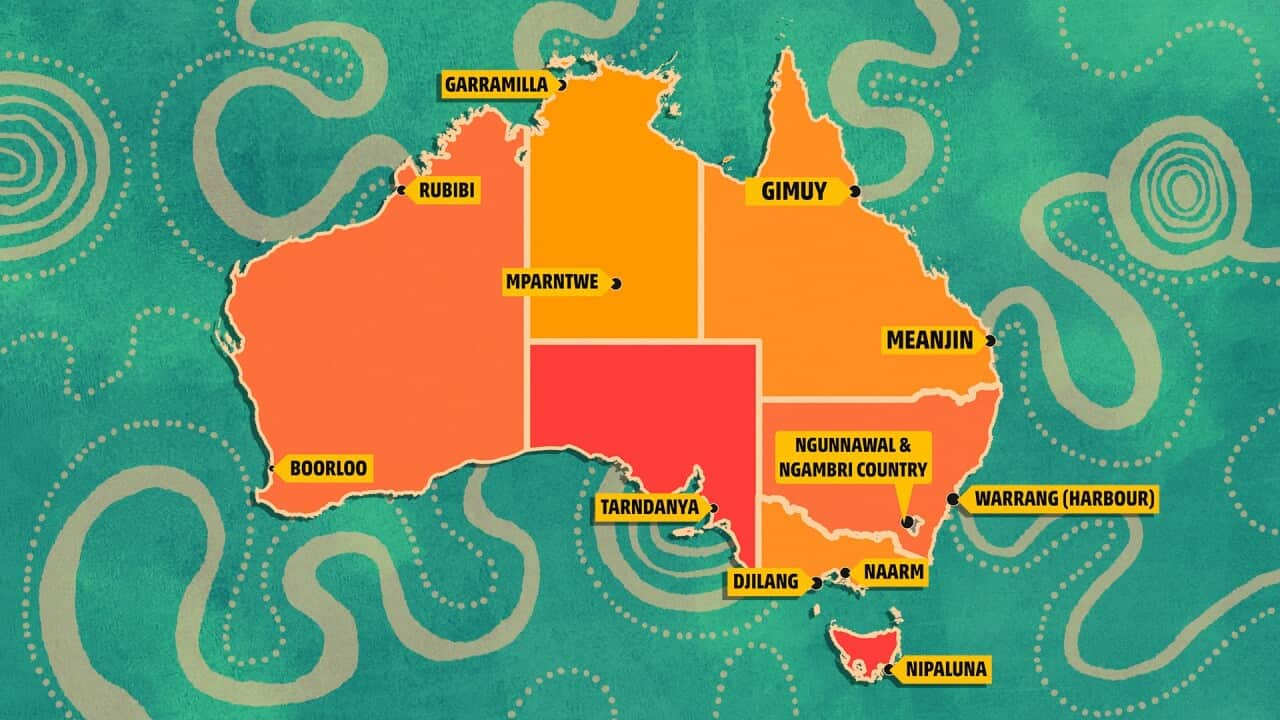Around 50 people gathered this week to celebrate the name change of Jim Crow Creek.
Jim Crow Creek in central Victoria has been changed to 'Larni Barramal Yaluk'.
Meaning 'creek that's home of the emu', the change occurred after almost two decades of staunch petitioning by Dja Dja Wurrung Traditional Owners and supporters.

Elder Uncle Rick Nelson performed a smoking ceremony as about 50 people gathered to celebrate the name change. Picture: Hepburn Shire Council
"The former name memorialised a sorry chapter in our shared history. It was offensive to my people, and I think, to others," he told those gathered.
“That name meant this creek was not a culturally safe place for Dja Dja Wurrung and all Aboriginal and Torres Strait Islander People.

Dja Dja Wurrung Group CEO Rodney Carter. Source: Supplied
Hepburn Shire mayor Brian Hood said that the previous name was unacceptable.
"The reality is that Jim Crow stems from racial segregation and anti-black racism and is therefore unacceptable," Mayor Brian Hood said.
The racist history of Jim Crow
The creek originally formed the boundary of the Franklin Ford Aboriginal mission station when it was in use up to 1867 and at the time was known as 'Black Protectorates Creek'.
The name Jim Crow was given to the site in 1890.
The term "Jim Crow" came from a song in a minstrel show in the 1830s in the United States. A performer wore blackface, sang and danced a routine making fun of a black person, called "Jim Crow."
Known widely as a racist and derogatory term, Jim Crow refers to racial segregation laws that were active in the United States. This legislation legalised white-only schools, restaurants, bathrooms and drinking fountains.
The term became an insult that was commonly used against black people.
Both Hepburn Shire Council and Mount Alexander Shire Councils voted unanimously for the change, but there were a number of objections submitted.
"It's interesting that some people that objected to the name change tried to use a position that this is a North American problem, whereas I think what the word Jim Crow can stand for, It's also a problem here," said Rodney Carter.
"As Australians when we travel the world and hear other languages, we're interested to try and be courteous and respectful and learn those other languages.
"The same could be said for us, trying to reclaim the many hundreds, if not thousands of (Aboriginal) languages and dialects here in Australia.
"When you say the words, you can actually speak to Country, and to be out at the creek, and to say its name gives reverence to that creek and the importance of Country," he said.
"So that's quite beautiful and quite moving if people can open their heart and mind to that."











